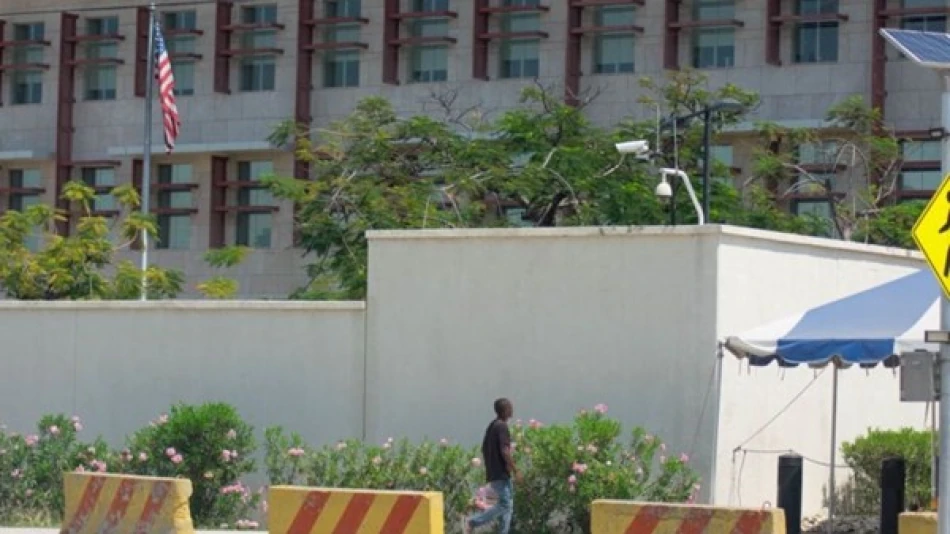
Violent Clashes Force Closure of U.S. Embassy in Haiti Amid Civil Unrest
US Embassy Lockdown in Haiti Signals Deepening Security Crisis as Gang Violence Spirals
The United States closed its embassy in Port-au-Prince and ordered all diplomatic staff to shelter in place following intense gunfire near the facility, marking another alarming escalation in Haiti's deteriorating security situation. The incident underscores how gang violence has now reached the doorstep of international diplomatic missions, potentially complicating future humanitarian aid and political stabilization efforts.
Embassy Under Siege in Tabarre District
The State Department announced via social media that "reports of heavy gunfire" in the Tabarre neighborhood forced American government personnel to halt all official movement outside the diplomatic compound. The area, located near Port-au-Prince's international airport in the northeastern part of the capital, has become a flashpoint for gang activity.
The embassy's closure represents more than a temporary security measure—it signals how armed groups now operate with impunity in areas previously considered relatively secure. Tabarre's proximity to the airport makes this development particularly concerning, as it could disrupt the flow of international aid and personnel that Haiti desperately needs.
Staggering Death Toll Reflects Systemic Collapse
The United Nations High Commissioner for Human Rights reported that at least 3,141 people were killed in Haiti between January 1 and June 30, with officials warning that violence could escalate further. This figure represents a humanitarian crisis that has transformed Haiti into one of the Western Hemisphere's most dangerous territories.
The death toll reflects not just random violence but a systematic breakdown of state authority. Unlike previous periods of political instability in Haiti, the current crisis involves well-armed gangs that control an estimated 60% of Port-au-Prince and have effectively paralyzed government operations.
International Response at a Crossroads
The embassy lockdown complicates an already challenging international response to Haiti's crisis. The United States has been reluctant to deploy troops directly, instead supporting a Kenya-led multinational force that has struggled to gain momentum. With diplomatic facilities now under threat, the calculus for international engagement becomes even more complex.
The timing is particularly problematic as Haiti awaits the deployment of international security forces that have been delayed for months due to logistical and political obstacles. The embassy closure could signal to other international partners that even limited diplomatic presence has become untenable.
Economic and Humanitarian Implications
For investors and international businesses, the embassy closure serves as a stark reminder of Haiti's investment risks. The country's already fragile economy faces further isolation as diplomatic missions—critical conduits for international aid and commerce—become targets.
The situation also threatens humanitarian operations. International organizations rely heavily on embassy coordination for security assessments and evacuation procedures. With the US embassy effectively under siege, other diplomatic missions may follow suit, creating a dangerous vacuum in international oversight and aid distribution.
Regional Security Concerns
Haiti's crisis extends beyond its borders, with implications for regional stability in the Caribbean. The Dominican Republic has already strengthened border controls, while migration pressures continue to build. The embassy incident may accelerate discussions about more robust regional intervention, though political will remains limited.
The closure represents a watershed moment—when gang violence reaches diplomatic facilities, it signals that traditional conflict resolution mechanisms have failed. Haiti now requires not just humanitarian aid but a fundamental restructuring of its security architecture, a challenge that the international community has yet to address comprehensively.
Most Viewed News

 Layla Al Mansoori
Layla Al Mansoori






